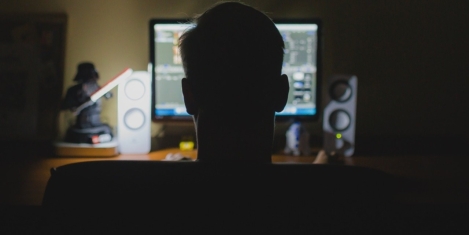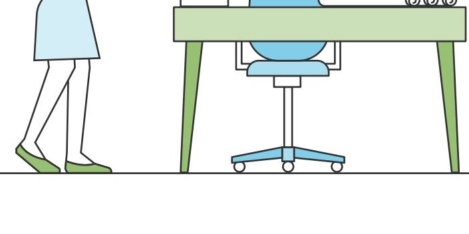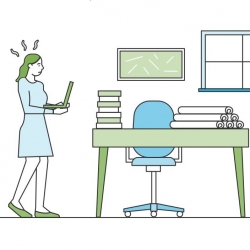To provide the best experiences, we use technologies like cookies to store and/or access device information. Consenting to these technologies will allow us to process data such as browsing behaviour or unique IDs on this site. Not consenting or withdrawing consent, may adversely affect certain features and functions.
The technical storage or access is strictly necessary for the legitimate purpose of enabling the use of a specific service explicitly requested by the subscriber or user, or for the sole purpose of carrying out the transmission of a communication over an electronic communications network.
The technical storage or access is necessary for the legitimate purpose of storing preferences that are not requested by the subscriber or user.
The technical storage or access that is used exclusively for statistical purposes.
The technical storage or access that is used exclusively for anonymous statistical purposes. Without a subpoena, voluntary compliance on the part of your Internet Service Provider, or additional records from a third party, information stored or retrieved for this purpose alone cannot usually be used to identify you.
The technical storage or access is required to create user profiles to send advertising, or to track the user on a website or across several websites for similar marketing purposes.
 A new report from the RSA and Vitality warns of the potentially serious impact on the long-term physical and mental health of employees. The authors claim that the ‘long lockdown effect’ should lead employers to see health and wellbeing as important strategic issues and place them on the company’s risk registers. With the shift to more flexible working cultures now set to continue, Healthy Hybrid, a Blueprint for Business, claims to shine a light on the health impact of successive lockdowns on homeworkers. (more…)
A new report from the RSA and Vitality warns of the potentially serious impact on the long-term physical and mental health of employees. The authors claim that the ‘long lockdown effect’ should lead employers to see health and wellbeing as important strategic issues and place them on the company’s risk registers. With the shift to more flexible working cultures now set to continue, Healthy Hybrid, a Blueprint for Business, claims to shine a light on the health impact of successive lockdowns on homeworkers. (more…)






 New research by
New research by 
 Mobile access company
Mobile access company 
 When the global pandemic struck last year, many companies were forced to close offices and enable employees to work remotely – bringing forward their digital transformation roadmap by a good few year. A year on, and while it seems that the Covid-19 restrictions are reducing, there is unlikely to be a complete shift back to the office. Instead, most companies are now planning to adopt a hybrid work model; with employees working a mix of in-office or remotely.
When the global pandemic struck last year, many companies were forced to close offices and enable employees to work remotely – bringing forward their digital transformation roadmap by a good few year. A year on, and while it seems that the Covid-19 restrictions are reducing, there is unlikely to be a complete shift back to the office. Instead, most companies are now planning to adopt a hybrid work model; with employees working a mix of in-office or remotely. 
 Increasing pressure from investors, customers and employees are causing CEOs to focus their businesses on purpose, resilience and long-term sustainability, according to a new report from the Reward & Employee Benefits Association (
Increasing pressure from investors, customers and employees are causing CEOs to focus their businesses on purpose, resilience and long-term sustainability, according to a new report from the Reward & Employee Benefits Association (


 A survey released by
A survey released by 
 Glint’s latest insights report shows that there is a worrying increase in employees experiencing challenges with their mental health, with burnout risk trending upwards year-over-year. That spiked in late March 2020 and climbed by nearly 4 percent between August and December 2020. That’s not a big surprise, given the first challenging months of the global pandemic. Paradoxically, employees say that despite feeling burnt-out, they also feel happier at work at the end of a year of lockdown than they did at the start. Is this some sort of contradiction—or evidence of something very encouraging about the state of HR?
Glint’s latest insights report shows that there is a worrying increase in employees experiencing challenges with their mental health, with burnout risk trending upwards year-over-year. That spiked in late March 2020 and climbed by nearly 4 percent between August and December 2020. That’s not a big surprise, given the first challenging months of the global pandemic. Paradoxically, employees say that despite feeling burnt-out, they also feel happier at work at the end of a year of lockdown than they did at the start. Is this some sort of contradiction—or evidence of something very encouraging about the state of HR? 
 As the world emerges from the grip of the pandemic, the
As the world emerges from the grip of the pandemic, the 
 Whether we’re always aware of it or not, body language plays a vital role in face-to-face discourse. In fact, over half of our effective communication comes via body language; that range of non-verbal cues that covers everything from facial expressions and gestures to posture and tone of voice. Meeting in person constantly draws on these signals, and we interpret them by instinct and via conscious analysis to guide the way we interact, frequently to help steer communication towards our goals. But nearly a year of lockdowns, remote working and general separation has challenged these norms, with video-based communication acting as a widespread, imperfect substitute.
Whether we’re always aware of it or not, body language plays a vital role in face-to-face discourse. In fact, over half of our effective communication comes via body language; that range of non-verbal cues that covers everything from facial expressions and gestures to posture and tone of voice. Meeting in person constantly draws on these signals, and we interpret them by instinct and via conscious analysis to guide the way we interact, frequently to help steer communication towards our goals. But nearly a year of lockdowns, remote working and general separation has challenged these norms, with video-based communication acting as a widespread, imperfect substitute. 
 UK employers claimed £24 billion of free labour last year because of workers doing unpaid overtime, according to new analysis published by the
UK employers claimed £24 billion of free labour last year because of workers doing unpaid overtime, according to new analysis published by the 







June 16, 2021
We need to rethink the role of technology in corporate wellbeing
by Brendan Street • Comment, Technology, Wellbeing